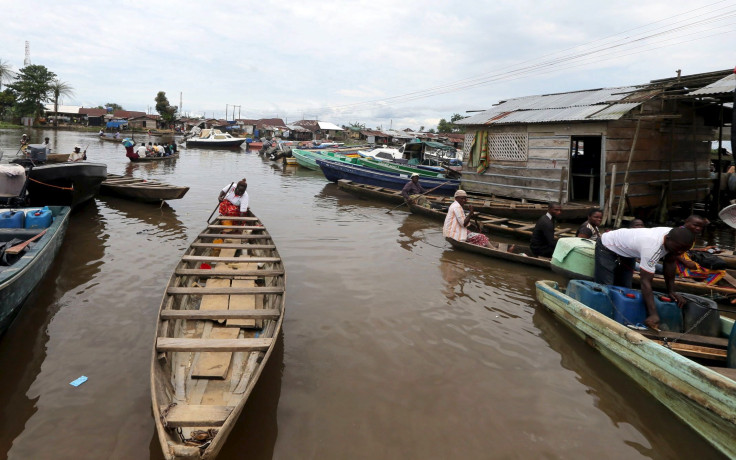Are Oil Companies Bad For The Environment? Shell Spill Caused 'Astonishingly High' Pollution In Nigeria

Back in 2008, Royal Dutch Shell PLC spilled half a million barrels of oil into a Nigerian fishing town on the Niger Delta, and, in 2015, settled with the community for $80 million—about 0.03 percent of the company’s revenue that year. But the problem was far from solved, the Wall Street Journal reported Thursday, because Shell not only didn’t finish cleaning it up but left the town of Bodo with “astonishingly high” pollution levels.
Citing a damage report kept confidential by Shell Petroleum Development Co., the company’s subsidiary in Nigeria, along with members of the local government and civil society groups, and a letter by the cleanup effort’s former leader to his successors, the Journal found that the consequences of the contamination could require three decades of cleaning, as well as health screenings for residents.
Read: This New Material Can Absorb Oil Spills, And Be Reused Over And Over
“SPDC has no right to conceal data important for the public although they might be unpleasant,” Kay Holtzmann, the former director of the Bodo Mediation Initiative, reportedly wrote in his letter to the project’s leaders in January. “The soil in the mangroves is literally soaked with hydrocarbons. Whoever is walking in the creeks cannot avoid contact with toxic substances.”
Holtzmann penned his letter the same day Britain’s High Court decided it would not hear a case against the oil giant by the area’s residents, because the London-based court did not have the proper jurisdiction, Al-Jazeera reported. The suit, in which lawyers represented 40,000 Nigerians whose local water sources had been contaminated by petroleum and carcinogens, was filed at the end of November.
Nigeria, a member of the Organization of Petroleum Exporting Countries, has long been a hotspot for the oil and gas sector, with the commodity accounting for 3 percent of its gross domestic product. The country harbored 2.2 percent of the world’s proven oil reserves—the 11th largest share in the world—in 2015, according to a report from BP p.l.c., and produced 2.6 percent of the world’s oil in 2015.
© Copyright IBTimes 2024. All rights reserved.












